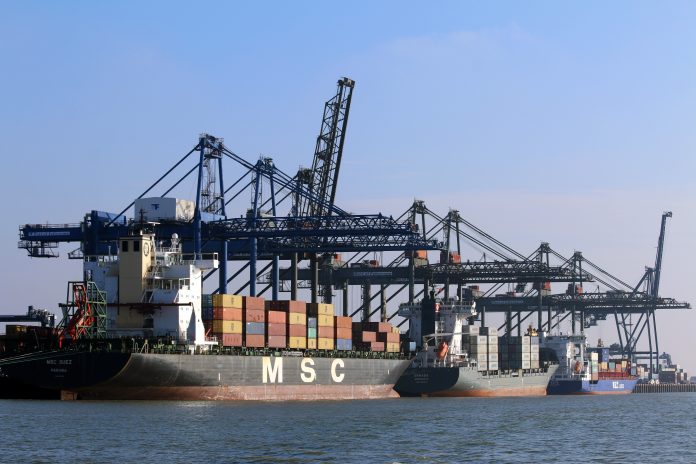Container lines covering Indian trades have begun to penalise customers, and more severely spot customers, for failing to fulfill their bookings as committed.
These charges are generally in the range of US$100 to US$400 per container for contract clients, while for walk-in customers, they are hovering at around US$1,000 per box.
Mediterranean Shipping Co. (MSC) will start applying no-show container penalties on Indian customers from 1 June.
“In view of our ongoing efforts to enable accommodate our customer’s growing demands, it is felt the need to control and manage our bookings efficiently and to be able to manage the current constraints faced in planning & optimization of our capacities,” MSC Agencies (India) said in a customer advisory.
“In this regard, MSC wishes to implement Booking Cancellation Fees (BCF), that will be applicable for all export ‘unmaterialised’ bookings against which containers are not picked up, till the port cut-off of the vessel on which booking is issued,” the company added.
Other leading carriers to/from India are also imposing heavy fines on cancelled bookings.
There is no denying that a large scale of booking cancellations and no-shows crimp ship operators’ ability to optimise capacity and make the complex supply-demand balancing increasingly difficult.
However, with ongoing constant schedule changes and blank sailings on major routes, Indian exporters also face a daunting task of planning their shipments and eventually, end up incurring hefty penalties for not meeting their slot bookings.
Sanjay Bhatia, co-founder of Mumbai-based digital freight broker Freightwalla, told Container News, “Ships sail at reduced capacity if there is a no-show of containers for loading leading to lower profitability for the shipping lines. Amidst high freight rates, the addition of no-show penalties is an additional burden. It will add to the freight forwarders and NVOCC costs, eventually passing on to the shippers.”
Interview with Sanjay Bhatia, CEO and co-Founder of Freightwalla
He added, “The approach may not be taken well by the forwarders and small and mid-sized exporters as they are under constant pressure due to persisting supply chain issues. No-shows result from multiple inconsistent practices like double booking, intermediary supply chain issues, cancelled booking, and delays from the source.”
Bhatia said that as a digital forwarder, Freightwalla constantly urges its clients to plan their ocean shipments well in advance in order to avert the risk of potential cargo shut-outs or booking cancellation charges.
According to industry sources, to avoid cargo rollovers, shippers at times are forced to book one container with multiple carriers. “Such ad hoc booking trends will only end when there is better schedule reliability,” pointed out a freight forwarder.
Jenny Daniel
India correspondent
Contact email: j.daniel@container-news.com







